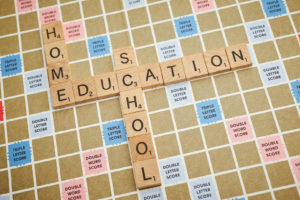Ontario boasts a world-class education system, behind which is the idea that each student is unique and deserves the opportunity to reach their potential and to succeed. The Ministry of Education puts tremendous work to shape the schooling policies to support this premise, which is published as a policy document called Growing Success: Assessment, Evaluation and Reporting in Ontario Schools. The blog post summarizes the main ideas behind the document, to help parents better understand how they can collaborate with schools to make their child’s learning journey a fulfilling and enjoyable one.As we expand our “report card” blog series, please be sure to check back for more useful articles on this topic for different grades. For your convenience, here are the available blog posts to date:
What is the Growing Success Document?
Growing Success is the official document from the Ministry of Education that describes the assessment, evaluation, and reporting policies and practices in Ontario schools. It is intended to improve fairness, transparency, equity, and consistency of the policies across all Ontario schools. To improve student learning, teachers follow these policies and procedures that:
- are fair, transparent, and equitable for all students;
- support all students, including those with special education needs, those who are learning the language of instruction (English or French), and those who are First Nation, Métis, or Inuit;
- are carefully planned to relate to the curriculum expectations and learning goals and, as much as possible, to the interests, learning styles and preferences, needs, and experiences of all students;
- are communicated clearly to students and parents at the beginning of the school year or course and at other appropriate points throughout the school year or course;
- are ongoing, varied in nature, and administered over a period of time to provide multiple opportunities for students to demonstrate the full range of their learning;
- provide ongoing descriptive feedback that is clear, specific, meaningful, and timely to support improved learning and achievement;
- develop students’ self-assessment skills to enable them to assess their own learning, set specific goals, and plan next steps for their learning
The document is very detailed and would make good reading for those keen on understanding the rationale behind the policies. But for busy parents out there, we have summarized the main ideas below.
Beyond Academics: Learning Skills and Work Habits
Countless studies support the idea that learning skills and good work habits are key to success in school and in the workplace. The Ontario government recognizes the importance for students to develop these skills and traits at an early age, leading to their incorporation into the Growing Success policies.
Growing Success identifies six learning skills and work habits for which students will develop through their school life, and be assessed and evaluated formally by teachers:
| Learning Skill/Work Habit | Sample Student Behaviors |
| Responsibility |
|
| Organization |
|
| Independent Work |
|
| Collaboration |
|
| Initiative |
|
| Self-Regulation |
|
All report cards have dedicated sections for learning skills and work habits where teachers will assign a rating (Excellent, Good, Satisfactory, Needs Improvement) to identify a student’s development progress, while providing evidence and improvement suggestions. As a partner in the child’s learning, parents should pay attention to the results and continuously support their children to improve in these areas outside of school.
For Kindergarten where there is no specific subject-based curriculum, assessment and evaluation of these soft skills is simplified into 4 frames per the Growing Success – The Kindergarten Addendum:
- Belonging and Contributing
- Self-Regulation and Well-Being
- Demonstrating Literacy and Mathematics Behaviours
- Problem Solving and Innovating
Assessment vs. Evaluation
As Growing Success explains, student assessment is the process of gathering information on how well a student is meeting learning objectives towards curriculum expectations. Assessment is continuous in nature, so both teachers and students can monitor their learning progress and make necessary adjustments. Consequently, teachers need to incorporate clear learning goals and assessment checkpoints into their lesson plans, as well as to use the assessment information to provide feedback and devise next steps. The technical term “assessment as learning”, in simpler words, refers to ongoing self-assessment on learning by students, while the term “assessment for learning” refers to assessment performed by teachers.
Where as assessment is iterative, evaluation summarizes a student’s achievement of the standard curriculum expectations at the end of a learning cycle. The technical term “assessment of learning” mainly refers to the evaluation process. Report cards are essentially the written evaluation that is released during mid-term, and at the end of school terms and school years. The following is a general schedule for report cards:
| Grade | Report | Reporting Period(s) |
| Kindergarten | Communication of Learning: Initial Observations | Late October to late November |
| Kindergarten | Communication of Learning 1 | Late January to late February |
| Kindergarten | Communication of Learning 2 | End of June |
| Grade 1 – 8 (Elementary) | Progress Report Card | Late October to late November |
| Grade 1 – 8 (Elementary) | Provincial Report Card 1 | Late January to late February |
| Grade 1 – 8 (Elementary) | Provincial Report Card 2 | End of June |
| Grade 9 – 12 (Secondary) | Provincial Mid-Term Report Card | Semestered:
Non-semestered:
|
| Grade 9 – 12 (Secondary) | Provincial Final Report Card | Semestered:
Non-semestered:
|
Student achievements are generally represented by either a letter grade in grade 1 – 6, or a percentage mark in grade 7 – 12, each of which can be categorized into levels that is representative of the student’s demonstration of curriculum mastery:
| Letter Grade (Grade 1 – 6) | % mark (Grade 7 – 12) | Description |
| A+ to A- | 80 to 100 | The student has demonstrated the required knowledge and skills with a high degree of effectiveness. Achievement surpasses the provincial standard. (Level 4) |
| B+ to B- | 70 to 79 | The student has demonstrated the required knowledge and skills with considerable effectiveness. Achievement meets the provincial standard. (Level 3) |
| C+ to C- | 60 to 69 | The student has demonstrated the required knowledge and skills with some effectiveness. Achievement approaches the provincial standard. (Level 2) |
| D+ to D- | 50 to 59 | The student has demonstrated the required knowledge and skills with limited effectiveness. Achievement falls much below the provincial standard. (Level 1) |
| R | Less than 50 | The student has not demonstrated the required knowledge and skills. Extensive remediation is required. |
| I | I | Insufficient evidence to assign a percentage mark. |
For Kindergarten, there is no grading and descriptive comments on student progress is provided. For elementary schools, the Progress Report Card provides a scaled rating.
There are also separate sections for evaluating a student’s mastery of learning skills and work habits. In addition to the comments, a scaled rating (Excellent, Very Well, Well, and Needs Improvement) is assigned in general for elementary schools, and for each course for secondary schools. There are also other indicators for differentiated learning such as ESL/ELD and IEP.
You can find samples of report cards here.
Parent Involvement is Key
Education is much like a long relay race where parents, teachers, and students must continuously work with and support each other to “win”. The policies in Growing Success recognize the important role parents play in their child’s learning, and are designed to keep parents informed and involved. Here are some general tips on how parents can help:
- Be aware of the report card periods and when to expect them.
- Understand the importance of learning skills and work habits in your child’s growth and track your child’s development in these non-academic areas.
- Recognize your child’s achievements per the level scale (for example, level 3 is fairly good), while providing them with positive support and encouragement for aiming even higher.
- Thoroughly read the report cards and pay special attention to comments where you will find key information such as improvement suggestions.
- Take advantage of parent-teacher interviews to clear any doubts about your child’s learning, and solicit ideas from teachers on how you can support your child outside of school.
We hope you find this introduction helpful in appreciating the research and policies that form the basis of our world-class education system in Ontario. To help you put this knowledge into practice, we will continue to publish blog posts on how to understand report cards in different grades, as well as tips on helping your child to improve based on the results. Stay tuned!
If there are topics that you would like us to cover, please drop us a message! Thanks for reading and be sure to check the TeachRequest Blog regularly for updates.




